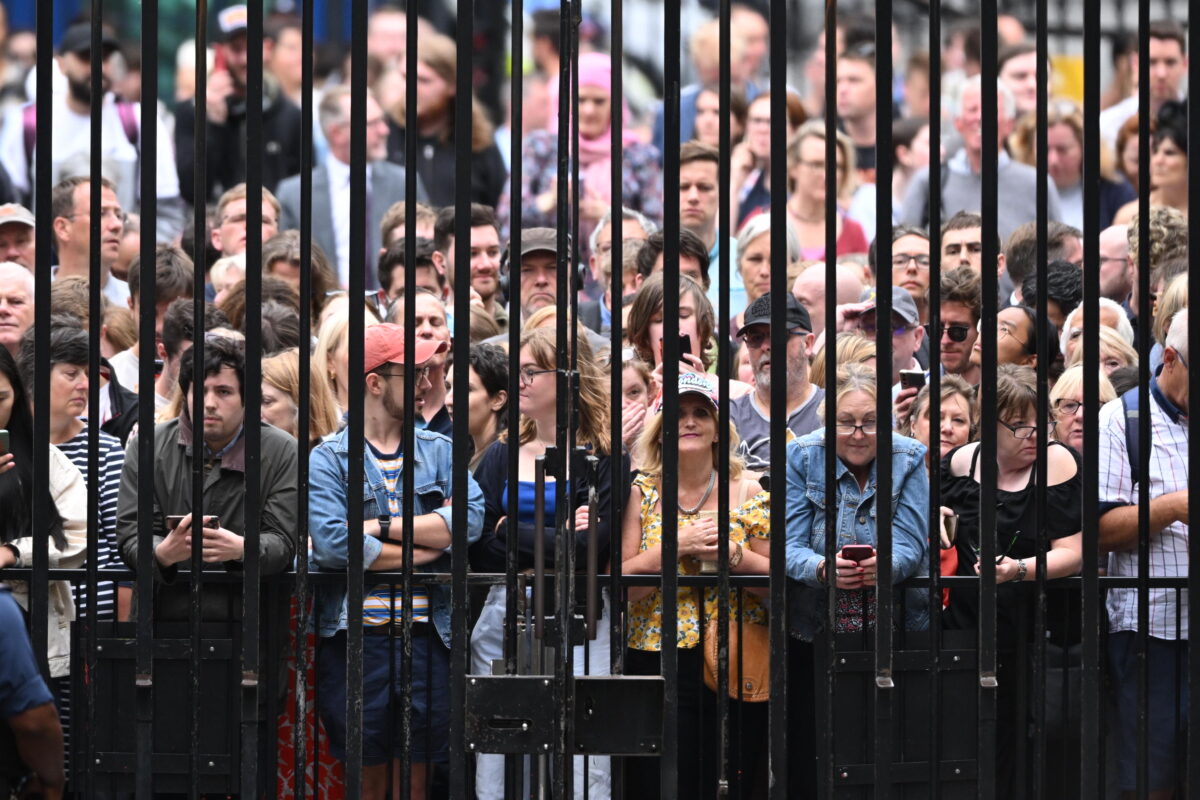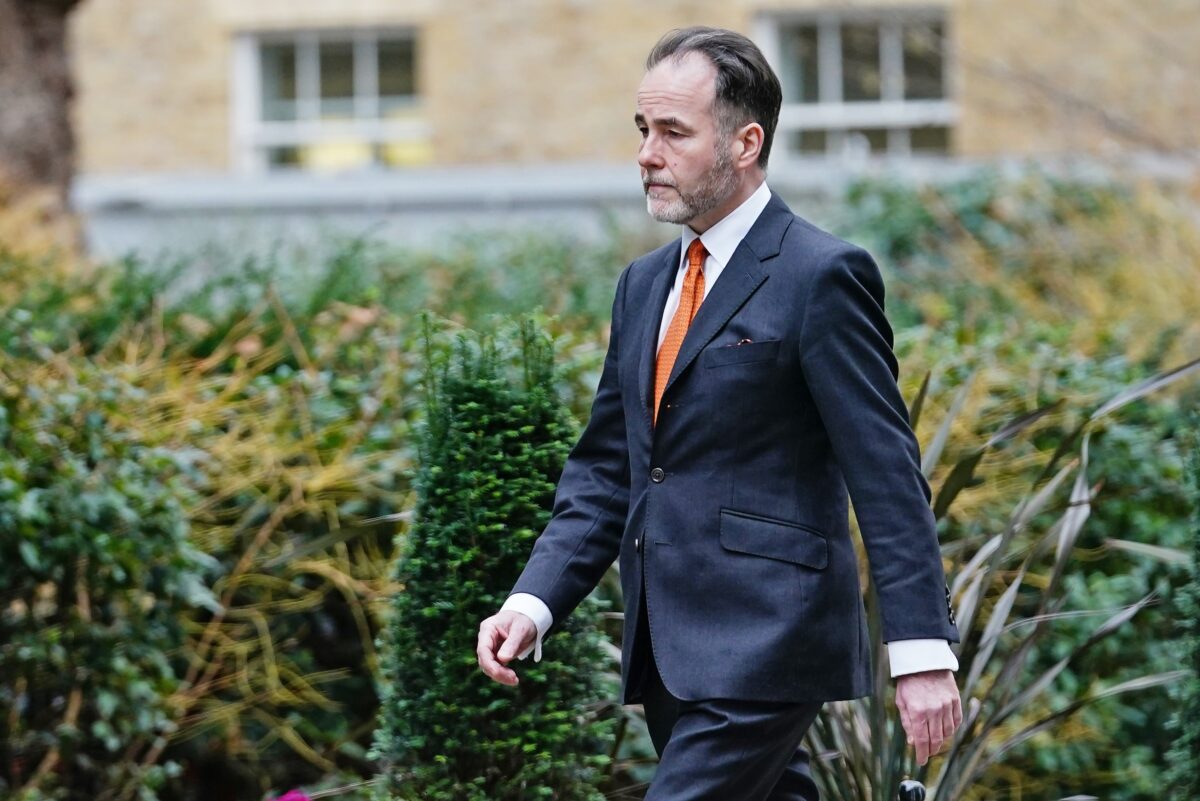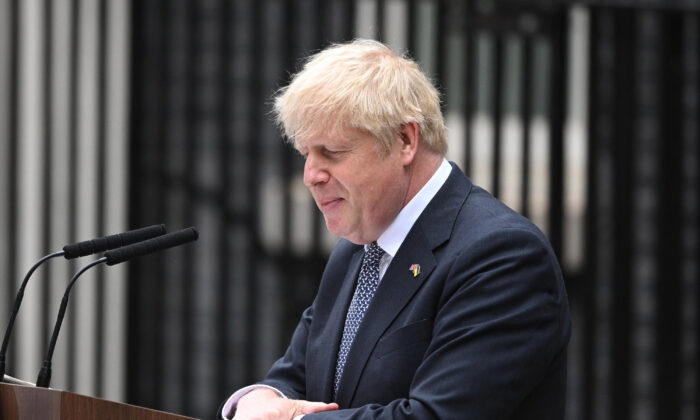Boris Johnson has finally announced he is stepping down as prime minister after the resignation of more than 50 government ministers, including a Chancellor of the Exchequer, Rishi Sunak, whose successor Nadhim Zahawi, then called for his boss to “do the right thing and go.”
Johnson, standing at a podium in Downing Street with his wife Carrie and his baby daughter Romy behind him, said, “It’s clearly the will of the Conservative Party that there should be a new leader of the party and a new prime minister.”
He thanked those who voted for the Tories in December 2019 and he said the reason he had held on for so long to the job was because of the mandate he received in that election.
Johnson said it was “painful” to give up the job of prime minister but he said nobody was “indispensible.”
On Wednesday Johnson, 58, had vowed to soldier on, after admitting it was a “mistake” to keep Chris Pincher on as a government whip despite sexual misconduct allegations against him.
After receiving a hostile grilling at Prime Minister’s Question Time, and then before the House of Commons Liaison Committee, he was lobbied by Michael Gove and several other Cabinet ministers who urged him to resign.
But Johnson then sacked Gove as Secretary of State for Levelling Up and appeared determined to carry on, having told MPs earlier he had a “mandate” from the general election victory of December 2019 and would continue to deliver on the Conservative Party’s manifesto promises.

On Thursday morning Nadhim Zahawi, who had been appointed chancellor less than 48 hours before following Sunak’s resignation, turned on Johnson, writing on Twitter: “This is not sustainable and it will only get worse: for you, for the Conservative Party and most importantly of all the country. You must do the right thing and go now.”
Then, at lunchtime on Thursday, Johnson finally confirmed he would be resigning, triggering a leadership contest in the Conservative Party.
Conservative Party Set for Leadership Contest
Johnson will remain as prime minister until a leadership election takes place in the ruling Conservative Party.
Among the front-runners will be Sunak and former Health Secretary Sajid Javid, but the Foreign Secretary Liz Truss is expected to be in the running, along with Attorney General Suella Braverman, and possibly Defence Secretary Ben Wallace and trade minister Penny Mordaunt.
When a new leader has been chosen Johnson—the 14th prime minister of Queen Elizabeth II’s 70-year reign—will visit the head of state at Buckingham Palace to formally tender his resignation.
The scandal over Chris Pincher had proved to be the final straw for many of his Cabinet colleagues, who had backed him in a vote of confidence over the “partygate” scandal last month.
That vote—which he won by 211 votes to 148—followed the publication on May 25 of civil servant Sue Gray’s report into COVID-19 breaches in Downing Street and the remarks by the prime minister’s ethics adviser Lord Geidt that Johnson may have breached the ministerial code by attending parties during the pandemic.
Johnson was famous for being a “big picture” prime minister who had a vision for the country but was prone to forgetting or ignoring details. That proved to be his undoing.
Pincher, MP for Tamworth, resigned from the whips’ office on June 30 and had his Conservative Party membership suspended over the alleged groping of two male guests at a private members’ club on June 29.
The allegations put Downing Street under pressure to explain why Pincher, who had resigned as a junior whip in November 2017 following a complaint that he made an unwanted pass at the former Olympic rower and Conservative candidate Alex Story, was given the job of deputy chief whip in February this year.

Downing Street previously said Johnson did not know about any specific allegations against Pincher before appointing him, but said on Tuesday Johnson had been briefed about a formal investigation against Pincher in 2019 but forgot about it last week.
Johnson, a former journalist and mayor of London, was elected MP for Uxbridge and South Ruislip in 2015, and the following year threw his hat in the ring when David Cameron resigned as prime minister after the Brexit referendum.
Theresa May got the top job instead and she made Johnson her foreign secretary, but he resigned from that job and in the summer of 2019 finally became prime minister after May resigned after being unable to push a Brexit deal through Parliament.
Johnson Won a Landslide Victory in December 2019
Johnson won a landslide victory for the Conservatives in the December 2019 general election but only four months later Britain was hit by the COVID-19 pandemic, which devastated the economy and disrupted many of the plans in his party manifesto.
Javid, in his resignation letter on Tuesday, told Johnson: “The tone you set as a leader, and the values you represent, reflect on your colleagues, your party, and ultimately the country.”
In Sunak’s letter of resignation he said: “Our country is facing immense challenges. We both want a low-tax, high-growth economy, and world-class public services, but this can only be responsibly delivered if we are prepared to work hard, make sacrifices, and take difficult decisions.”
News of Johnson’s imminent resignation boosted the pound earlier on Thursday; it was up 0.6 percent at $1.198.

